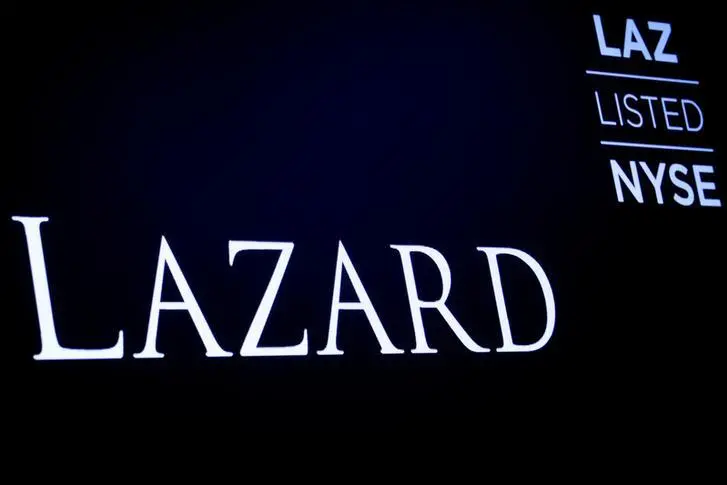PHOTO
PARIS/LONDON- More governments could be forced into negotiations with creditors this year as the coronavirus crisis piles further pressure onto countries already struggling with debt repayments, executives at investment bank Lazard said.
The U.S. firm with roots in France, which has long carved out a niche advising states on their debt restructurings, is pitching for more mandates after adding clients including Argentina and Lebanon this year.
"Countries that have borrowed in a currency that is not their own and don't have a central bank that can help are being choked," Pierre Cailleteau, managing director in Lazard's Paris-based sovereign advisory team, told Reuters.
"There are going to be many situations of financial distress."
Emerging market debt was sold heavily in March as lockdowns were put in place to halt the pandemic but has recovered some lost ground as economies restart and after G20 governments suspended payments owed by some of the poorest countries.
Lazard executives declined to comment on which countries might be close to needing sovereign debt overhauls involving private creditors.
Falling prices for raw materials and especially oil -- major foreign currency earners -- are among potential triggers for debt restructurings, according to Lazard's head of France, Jean-Louis Girodolle.
"The ingredients for there to be other situations of difficulties on the sovereign debt front are there," he said.
Belize said recently that it would ask holders of its U.S. dollar bond due in 2034 to agree a deferral of interest payments for six months, citing a devastating collapse in tourism revenues because of the pandemic.
Falling tourism and textiles earnings are also straining Sri Lanka's public finances, although its central bank said in May the island would honour all its debt service obligations.
Debt restructurings are likely to be more complex than ever, Cailleteau said, citing increasingly assertive bondholders, the rise of China as a creditor and questions over the approach index-tracking funds might take.
"It's very, very rare that we are going to have situations where you can just open the rulebook and go to chapter one," he said.
LAZARD UP FRONT
A wave of sovereign restructurings could be a potential boon for Lazard and its handful of competitors as the coronavirus outbreak derails company mergers and acquisitions, their other main area of expertise.
Lazard's team of 20 sovereign specialists has also been hired by Zambia and Ecuador this year.
Some of the firm's star bankers have left, including to competitors vying for the same business, with sovereign debt specialist Eric Lalo jumping ship to Rothschild and former French CEO Mathieu Pigasse joining U.S. boutique Centerview.
Despite the merry-go-round, one restructuring banker who has pitched for business against Lazard said states were often keen to play it safe, one advantage for the firm. The Lebanese government for example had been reassured to see the bank hired by an "experienced defaulter" like Argentina, he said.
The fact that Lazard does not lend meanwhile lessens any perception that its advice might be influenced by the potential for underwriting fees, according to David Fanger, an analyst at Moody's Investors Service.
Debt restructurings can be especially drawn-out affairs for advisors, which are mostly paid through success fees.
Talks in Lebanon, which involve the International Monetary Fund, have been bogged down by internal disagreements, including between the government and the central bank.
Lazard executives declined to comment on the outlook for Lebanon.
(Reporting by Gwenaelle Barzic, Sarah White and Leigh Thomas in Paris and Tom Arnold and Karin Strohecker in London; Editing by Catherine Evans) ((sarah.white1@thomsonreuters.com; + 33 (0) 1 49 49 56 85;))





















